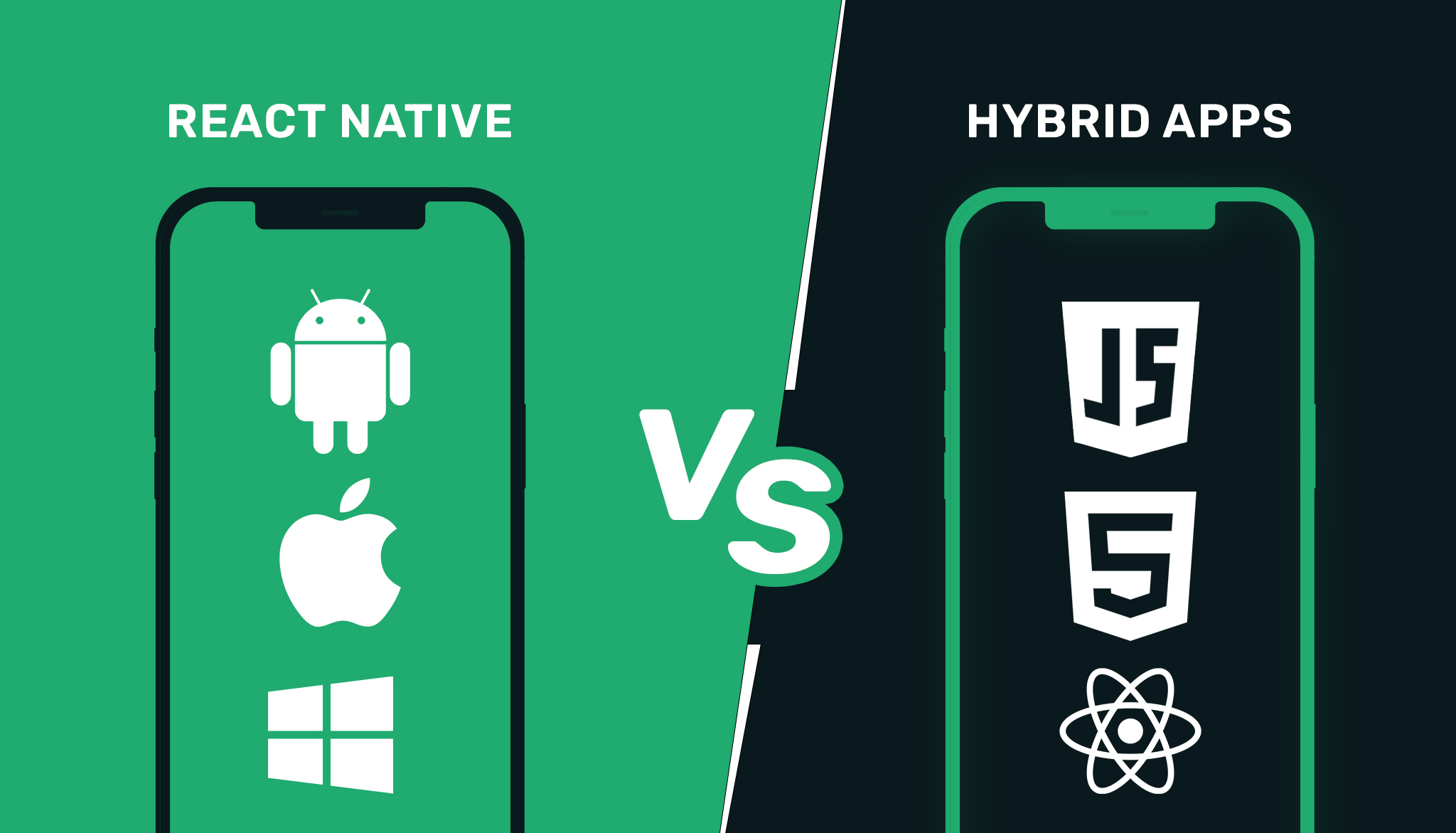In the ever-changing mobile app development market, developers and businesses must make a vital decision: do they leverage the strength of React Native or the flexibility of Hybrid Apps? In this detailed tutorial, we will investigate the fundamental concerns in the React Native vs. Hybrid Apps debate and examine the important elements that determine this decision. We’ll look at the compromises made while balancing many aspects, as well as the problems that each technique entails. By the conclusion of this book, you’ll have a better knowledge of how to pick between these two different paths.
Introduction
The need for streamlined and effective app development has never been stronger as the digital world evolves more and more app-centric. Both React Native and Hybrid Apps are now well-known competitors, each of which offers a unique approach for creating mobile applications that support both iOS and Android platforms. Either you’re a developer seeking efficiency or a business striving for cost-effectiveness, the React Native vs Hybrid Apps debate is worth exploring.
React Native
React Native, considered a game changer, combines react native app development and web innovation in a beautiful dance. React Native’s appeal stems from its use of JavaScript to develop cross-platform apps that mimic native performance. This means creating code once and delivering it across both iOS and Android, cutting development time and effort significantly. Its “learn once, write anywhere” mentality provides a smooth transition for React developers, making it a popular alternative for those looking for efficiency.
Hybrid Apps
Hybrid Apps, on the other hand, provide a unique combination of web technology and native components. They provide cross-platform compatibility while being distributed through app stores by encapsulating web apps within native frames. The appeal of Hybrid Apps is their low cost and potential to reach a larger audience without the complexities of platform-specific development.
Performance and User Experience
Performance and user experience are critical in app development. Because of its close relationship with native components, React Native mobile app achieves near-native speed, guaranteeing a smooth user experience that adheres to platform standards. However, while Hybrid Apps provide cross-platform seamless integration, they might suffer from performance issues since they run under a WebView component. Slower animations and load times may result, thereby hurting the overall user experience.
Code Reusability and Development Speed
One of the key benefits of both React Native and Hybrid Apps is code reusability, which greatly shortens development cycles. Because React Native mobile app has a single codebase, developers can design apps that work on both the iOS and Android platforms. Hybrid Apps, on the other hand, enable developers to create code once and distribute it across numerous platforms, saving time and effort.
Access to Native Features and Third-Party Libraries
While React Native provides an extensive range of native modules, there may be times when third-party modules or even native modules are required to fulfill particular features. Because of their web-based nature, hybrid apps may access a wide range of third-party libraries by design. They may, however, be restricted from accessing advanced native features.
Customization and User Interface
The user interface (UI) is critical to the success of an app. Because React Native is firmly matched with native components, developers can construct UIs that interact easily with the platform. This allows for a more personalized and native-like look and feel. Hybrid Apps, on the other hand, may experience customisation issues owing to their dependency on online technology.
Maintainability and Long-Term Viability
It is vital to explore how to maintain and update programs over time. Because of React Native’s popularity and community support, updates and upgrades are well-maintained, making it a trustworthy choice for long-term projects. While hybrid apps provide a more efficient updating process, they might occasionally face obstacles due to changes in web technologies and compatibility issues.
Complexity and Budget
The complex nature of your project and your financial limits are important considerations when deciding between React Native and Hybrid Apps. React Native might be an excellent solution for medium to large-scale apps that demand great speed and native-like user experiences. Hybrid Apps, on the other hand, are best suited for smaller applications or those with fewer resources, when cross-platform compatibility and cost-effectiveness are valued.
Conclusion
As the world of app development evolves, the choice between React Native and Hybrid Apps becomes increasingly important. The best option is determined by a variety of variables, ranging from performance and user experience to code reusability and customisation. Developers and enterprises must balance these factors against the backdrop of project complexity and money. You may confidently begin on your app development journey by carefully examining your project’s needs and matching them with the strengths of each strategy.
What’s Next?
Hoping that you enjoyed learning all about react vs hybrid apps in this comprehensive guide! There is a whole list of guides and articles that will help you learn so much more about the latest trends and technologies. Don’t miss these engaging reads and stay ahead of the game:
- Emerging Technologies to Watch Out for in 2023!: Stay ahead of the curve by investigating cutting-edge innovations that are poised to alter industries and change our future.
- Website QA Testing Tips: Ensuring Excellence Online: Dive into the realm of website quality assurance testing and learn vital strategies for ensuring a pleasant online user experience.
- The Future of NFT: Explore the fascinating world of Non-Fungible Tokens (NFTs) and learn how they are altering the realms of art, collectibles, and beyond.
With such an array of topics available for research, there’s little question you’ll find something that will satisfy your hunger for knowledge. Enjoy your reading and exploring!


